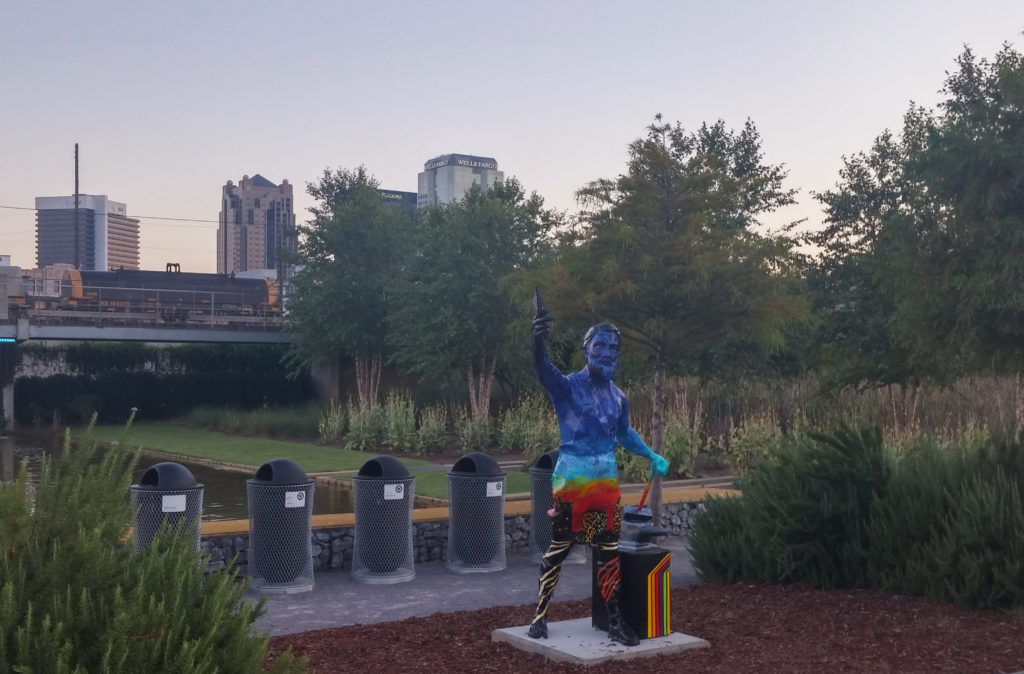
I still enjoy a view of Vulcan from my desk at home (at least, for most of the year and not the one you see above). Discussions about the heart of Jones Valley being of “perpetual promise” still occur. There are still efforts underway to fill gaps in our local media ecosystem.
Some things have not changed in ten years.
That said, new residential and commercial projects are springing up across our metro area with increasing frequency. Outside news organizations focus an ever-sharper light on Birmingham and its people. In the midst of this progress, there’s still a need to focus on the day-to-day events of the state’s largest city.
I wasn’t quite sure what to expect in March 2007. It helped not to set too many goals back then. Of course, now there’s still a website answering to this URL where you find yourself (although it’s in desperate need of a refresh – it’s coming).
Ten years ago I looked at Pegasus News in Dallas, Gapers Block in Chicago, and Gothamist in New York admirably. I wondered if The Terminal could ever be mentioned in the same breath. I also wondered if we could meet the same need or more. It met at least the first goal, and I’ve gotten a chance to meet (and in GB’s case, know) the founders of those three trailblazers. Mike’s consulting. Jake just sold to DNAInfo. I just had dinner with Andrew while I was in Chicago in November talking about what happens next.
I’m the last of the four that are independently owned, with some level of continued operation. It’s a little scary. Our Twitter account remains active. (It still lays claim to hosting the first Twitter chat focused on discussing current events in a city.) I have a few stories saved as drafts on this site’s backend. I’ve resisted the urge to write commentary, despite having a lot of thoughts on a lot of issues. There are sheets of butcher paper with Post-It notes on the wall of my home office. They outline exactly what came out of that conversation with Andrew and others.
I’ve spent most of the sixteen months trying to recover from a stretch of anxiety attacks. They were so crippling I couldn’t take more than four steps before feeling like I wasn’t going to make it. I’m still not completely recovered, but I’ve learned much from the experience. This includes how easy it can be to beat oneself up about a lack of accomplishments.
This website enabled me to maintain a monthly column for a city magazine. I filled in for one of my favorite media columns at Poynter four years ago. Last year I was asked to co-author one of my own. (It returns next week.) I have the honor of spearheading the return of the Carnival of Journalism. I’ve been a part of the #wjchat crew for seven years now. I even interviewed as a finalist for a Nieman fellowship. I’ve been able to say and do more than I ever thought professionally possible. The friendships that have developed and endured as a result of all of these things and more are treasured – including those made during a Terminally Happy Hour or sitting in an area coffee house or bar just talking about Birmingham.
Plus, there’s still this place on the web. I’m still having conversations about what happens next. I mean, the domain’s paid up for the next year…
The level of change occurring in metro Birmingham is pretty incredible:
- What part of that change do you need to know about?
- How do you need to know about it?
- What frequency do you need to know about it?
Despite the significance of the day, I have no grand pronouncements to make. If you can find the time to respond to any or all of those questions posed, that’d be helpful. Knowing there’s still interest makes it easier to continue those discussions.
Those who’ve continued to check in on this site and me not just recently, but throughout the last decade, “Thank you!”.
Now’ I’ve got to go find some pi(e) and continue to dream great dreams…
André Natta is the stationmaster for The Terminal. He’s also digital media producer for WBHM-FM; a columnist for Poynter.org; and lead organizer of the Carnival of Journalism.





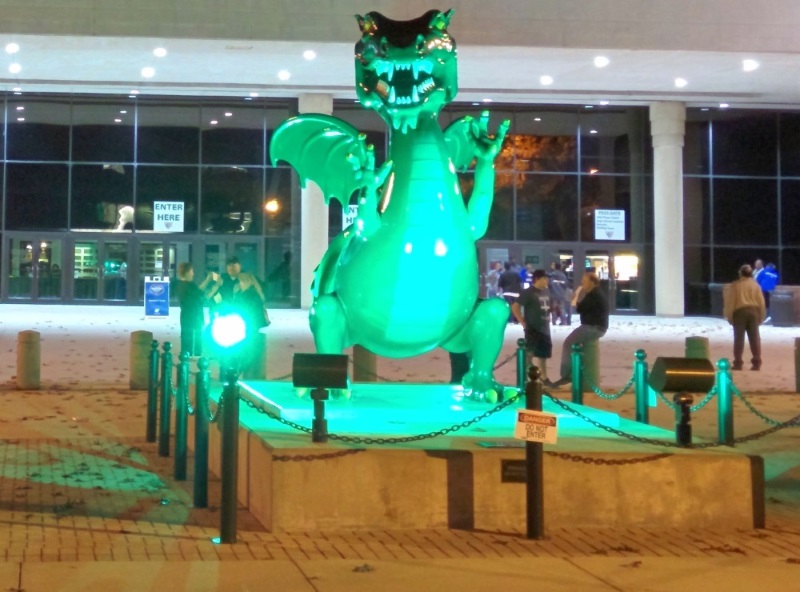 I’ve been sitting back and watching all
I’ve been sitting back and watching all 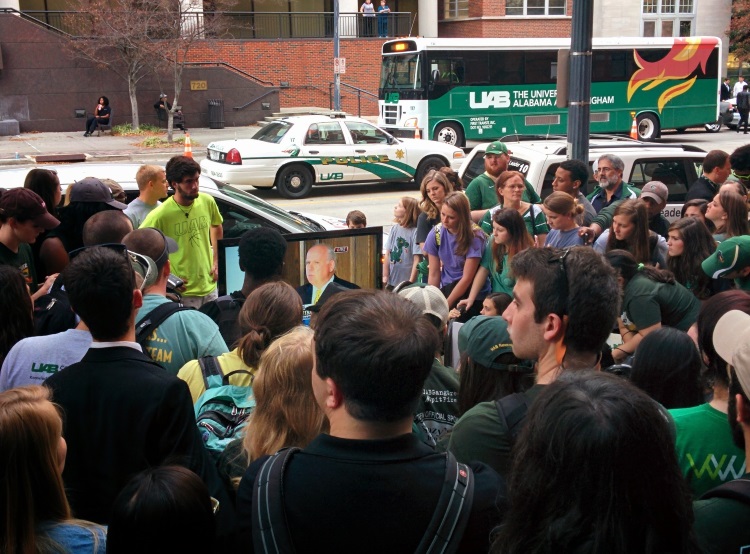 I’ve gotten used to hearing many people tell me that over the years. It’s never really hit me how useful being different was until I started working on the presentation to the Alabama chapter of the Public Relations Society of America (PRSA). The focus of the talk will be dissecting the announcement that led to the discontinuation of bowling, football, and rifle back on December 2, 2014.
I’ve gotten used to hearing many people tell me that over the years. It’s never really hit me how useful being different was until I started working on the presentation to the Alabama chapter of the Public Relations Society of America (PRSA). The focus of the talk will be dissecting the announcement that led to the discontinuation of bowling, football, and rifle back on December 2, 2014. 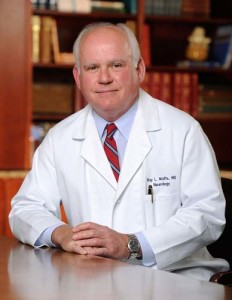 There’s a commonly held stereotype that doctors don’t all have the best bedside manner. I’ve been lucky to know a few doctors in my life (some as friends, at least one as family) that don’t measure up to that perception; they’re engaging, informative, and personable. Unfortunately, the last 48 hours have demonstrated that it might actually apply to UAB president Ray Watts (especially after the release of
There’s a commonly held stereotype that doctors don’t all have the best bedside manner. I’ve been lucky to know a few doctors in my life (some as friends, at least one as family) that don’t measure up to that perception; they’re engaging, informative, and personable. Unfortunately, the last 48 hours have demonstrated that it might actually apply to UAB president Ray Watts (especially after the release of 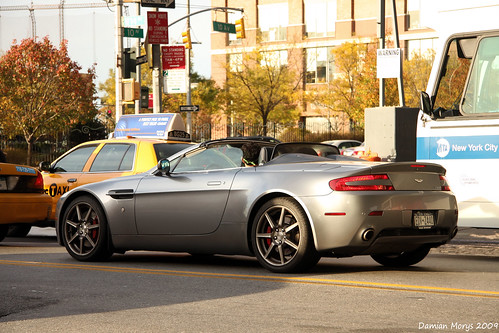 I was on the phone with my mother (still up in the Bronx) last week when she asked about what I hoped to be writing about once the site was back up. I told her about the recent twists and turns involving Uber. Then she said, “By the way, Lopez said hello.” I had to smile.
I was on the phone with my mother (still up in the Bronx) last week when she asked about what I hoped to be writing about once the site was back up. I told her about the recent twists and turns involving Uber. Then she said, “By the way, Lopez said hello.” I had to smile.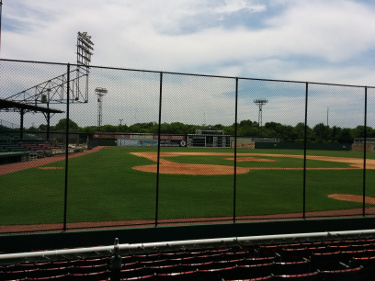 “You know,
“You know,  No, I’m not insane. Word of
No, I’m not insane. Word of 

Changing the South means changing the attitude
NOTE: I wrote a response to a post shared on Facebook earlier today and felt the need to write this (exceedingly long) addition to/explanation for it.
I almost didn’t go out at all on Friday night. The plan was to crash on the couch after a week of attempting to prove to my laptop who was boss — and losing. A night at home would help me regroup and be ready to play catch up over the weekend.
This meant I was choosing to skip the first Art on the Rocks! of 2015 (complete with preview access to the Hale Woodruff exhibit fresh off a visit to the Smithsonian); three chances to see Garth Brooks and Trisha Yearwood at the BJCC (or a musical); three Barons home games (though I did see the fireworks post-game on Friday from the porch); a screening of Monty Python and the Holy Grail at the Alabama Theatre; and buying a ticket for the first ever heavyweight title fight held in Alabama. That was just what was available in greater downtown (Beer on the Back Porch at Ruffner Mountain was pretty tempting as well on Friday).
Then, Mike Fourcher’s face popped up on my phone:
“Hey, man,! I’m in Bham. Where should I go out?” His phone number followed.
Mike is one of the folks behind Aldertrack, a must-read for political junkies in Chicago, IL. He’s also part of a group of peers I often forget are accessible as I continue to maneuver through the world of journalism, first meeting during the inaugural Block by Block Community News Summit in Chicago nearly five years ago.
I sent a message back saying he’d picked one of the craziest weekends to be visiting. Before I could get the next sentence started (stupid thumbs), he replied:
“I’m here for the Wilder-Molina fight.”
Forty minutes later I find myself sitting on the patio in front of Carrigan’s Pub with Mike and four others. There was a married couple from Texas, another woman, and a guy I later found out was from Queens.
I was asked what I did for a living. I told them about this site and then mentioned my new job working for the Southern Education Desk project. There was some interest in The Terminal, but most of their eyes looked intrigued by the work of the SED — then I found out what they all did for a living…
This is how I ended up having a conversation about the current and future state of Birmingham and issues involving education across the south with Eric Molina’s wife (an A.P. History teacher) and two of their friends (both principals). The guy from Queens was Molina’s attorney. There was no pomp, no fluff. Just a party of six enjoying great local beers (Good People and Cahaba, for the record) and great conversation.
I grew up in a city natives refer to as “the Greatest City in the World” and spent eleven years soaking up life in “the Hostess City of the South.” This September will mark eleven years in Alabama’s Magic City, though I often refer to it as “the City Built to Change the South.” It has done just that on numerous occasions, for better and worse. While some of the episodes many would like to forget were mentioned during the 2+ hours on the patio, most of it was focused on the potential, the progress, and the lessons Birmingham still teaches today.
They enjoyed what they’d already seen and hoped to do things like the Civil Rights Institute as well, wanting to see the important places of history, but also the progress. They felt privileged to be here, excited for the opportunity.
We live in the youngest major city in the southeastern United States, but one with a legacy and road map continuing to influence communities much older, albeit not without some longing for it to live up to its original nickname. Time can often be a brutal and unfair thing as it must pass for things to move forward. The city and the region is still positioned to change the South while still being Southern, leading to conflict among those wishing that wasn’t exactly the case.
There is a scarcity still faced by many in the community, leading some to question our priorities as we continue the process of remaking our city. There’s a fight though — a willingness to change the script and forge ahead, to leading or find a way to do something better. It’s still a scrappy community making big waves, and while many of us are the better for it, many more hope we continue to find ways to include more in the progress and the conversation.
Starting down the slippery slope of whether or not we’re a destination city isn’t necessarily where the conversation needs to currently live. Perhaps it’s about whether or not we’re worthy as a city to continue to dream and push forward so we have the attitude that accompanies being the destination actually shared by more than a few select people. Talking about our place in history should be accompanied with what we’ve done to build on it (& what still needs to be accomplished as we truly start to move forward).
It’s catching though, this positive attitude. This photo shows the property catty-corner of Cotton’s in downtown Ensley. There’s a community willing to dream big enough to think of respected artists designing murals for the wall of the Bethesda Life Center, the building of flower beds, and the belief a place is what you think it can be. It’s everywhere you’re willing to look for it — and tap into it. It may take a lot longer than you’d like, but it’s there for the taking — and for feeding off of if you ever begin to worry.
The energy from the conversation on the porch reminds me just how much fun it can be around here — when you want it to be. Do some egos need to be checked at the door? Yes. Does a can-do attitude need to see the light of day in the hearts and actions of the community as a whole? Absolutely.
We’ve changed the South before. Perhaps feeding off the excitement and the potential while finding opportunities for all will help us do it one more time and continue to help us do so for as long as we’d like.
Leave a comment
Posted in Birmingham, Commentary